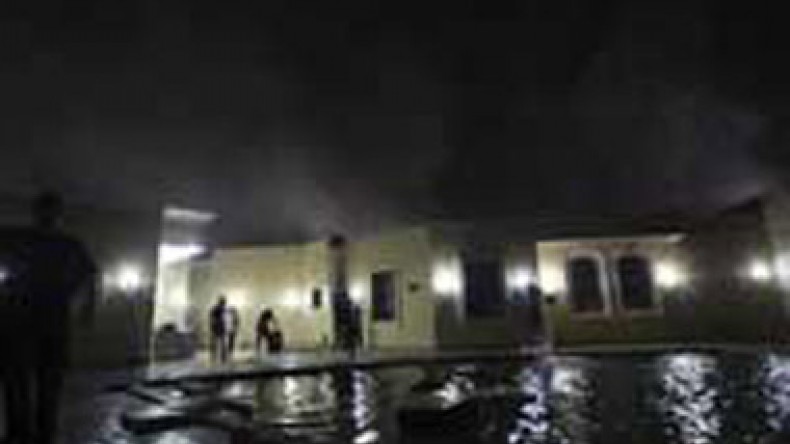
Libyan Islamist says he was at U.S. consulate during attack
A Libyan militia commander who U.S. officials say is under investigation in connection with the attacks on the American consulate in Benghazi which led to the death of the ambassador said he was present during the incident but was not one of the ringleaders, Reuters reported.
Some American newspapers have quoted unnamed Libyan officials as pointing to Ahmed Abu Khattala as the leader of the attacks on Sept, 11. The newspapers also reported that the officials said Abu Khattala's whereabouts were unknown.
U.S. government sources told Reuters that Abu Khattala is being investigated as a suspect in the Benghazi consulate attacks though U.S. investigators are not clear at this point if he played a role in leading or organizing the attacks.
The killings of Ambassador Christopher Stevens and three colleagues in Benghazi have become a flashpoint in the U.S. election campaign, with Republicans seizing on the issue to accuse President Barack Obama of failed leadership.
In an interview, Abu Khattala told Reuters he had only heard he was a suspect through news media and was surprised that officials had told journalists he was at large.
"These reports say that no one knows where I am and that I am hiding," he said. "But here I am in the open, sitting in a hotel with you. I'm even going to pick up my sister's kids from school soon."
Sitting with a friend in the restaurant of a Benghazi hotel, the 41-year-old, sporting a red felt hat and a full salt-and-pepper beard, laughed gently.
A Libyan interior minister official close to the investigation told Reuters that a photograph was taken of Abu Khattala at the consulate at the time of the September 11 attacks but there was not enough evidence to arrest him.
"There were many people there from Ansar al-Shariah, from other brigades and from the general public," the official, who refused to be named, said, referring to the hardline Islamist militia group which has been blamed for the attack.
"Just because someone is there doesn't mean they were behind it."
Abu Khattala denied being a leader of Ansar al-Shariah, but said he was friendly with the group and knew its membership well.
A U.S. official said there may be more than person taking a lead role in the group.
Abu Khattala said that on the night of September 11, he received a phone call telling him that an attack on the U.S. consulate was in progress and that he then went to the scene.
"I arrived at the street parallel to the consulate and waited for other brigade leaders to show me the way to the buildings," he said. "I arrived at the scene just like the others did -- to see what was happening."
Newsfeed
Videos






























